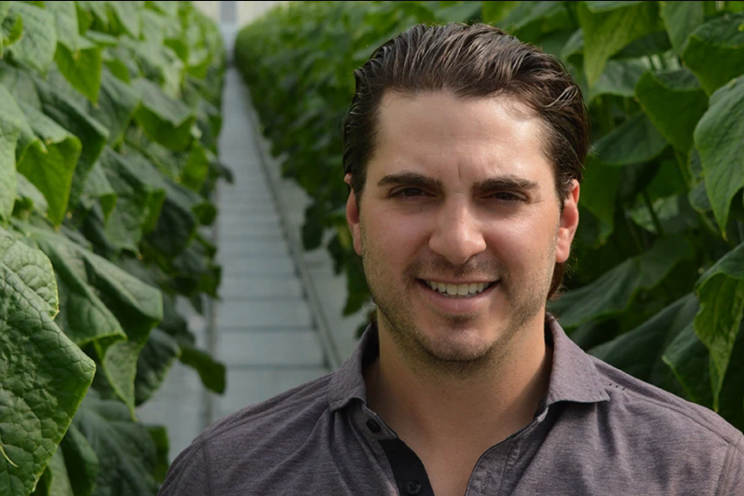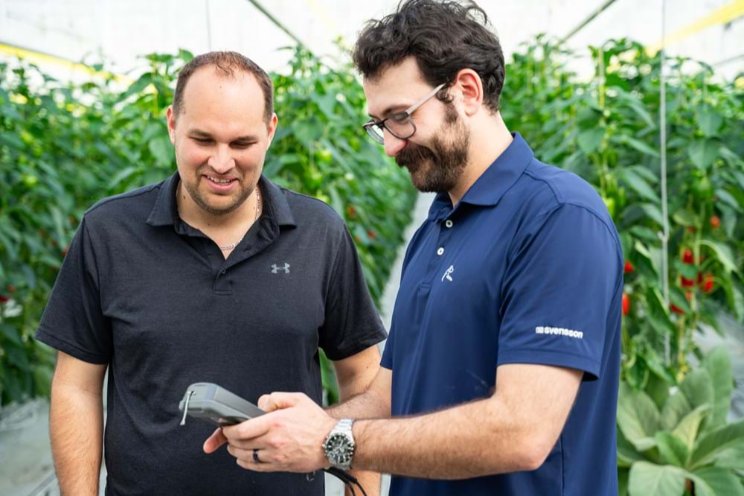Developing treatment for Alzheimer's using plant products
Added on 15 July 2020

MSU Horticulture Professor Muraleedharan Nair studies the human health benefits of plants for the treatment of diseases such as cancer, Alzheimer's disease, Parkinson's disease, musculoskeletal diseases, obesity, type-2 diabetes, inflammation and parasitic/microbial diseases.
Currently, Nair is working with the plant Withania somnifera on a therapeutic treatment to prevent Alzheimer's disease. The fruit of this plant produces an antioxidant compound that he named withanamide. This compound and its analogs have been proven in lab tests and in vitro studies to slow the damage caused by the plaque on brain cells in Alzheimer's patients.
"Alzheimer's is one of the major diseases which has no treatment," he said. "When we started looking at the biological activity of the disease, we found that these compounds would allow us to create a therapeutic drug that could prevent and slow down the advancement of the disease. Once we found withanamide is a powerful antioxidant, we discovered that it can be used directly for human health."
Through studying the leaves and fruits of Withania somnifera, Nair was able to isolate new anti-inflammatory compounds from the leaves and withanamide from the fruit.
When examining Alzheimer's mechanisms, he found that the level of oxidative stress on the cells plays a key role in the buildup of plaque that causes destruction of the neuronal cells.
"My approach is to look at how to mitigate the plaque activity," Nair said. "We found withanamides protect the cell membrane from oxidative damage and detrimental effects from plaque buildup. That was very exciting.
"Modeling studies led to the conclusion that withanamides have the ability to prevent the reaction caused by the plaque, which in turn destroy the brain cells "
Nair said he plans to get funding and approval of withanamides for clinical trials and eventually into the market for Alzheimer's patients.
"The role of plant science in studying plants for human health is incredibly important," Nair said. "If you look at human civilization, we have been using plant-based products for centuries. Even today, we use traditional medicine.
"The FDA now approves botanical drugs and plant-based products. They are faster and more economical to produce. The role of plants in human health is extremely important and it will always be."
His treatment, if successful in clinical trials, would be an option for early onset patients to take to slow the advancement of the disease. He said finding a plant-based remedy would provide a sustainable option for patients and drug manufacturers.
"Producing the drug directly from plants would help growers and provide an economic benefit to those farming communities," Nair said. "They are growing the plant and harvesting the fruit that will be used as a botanical drug."
His lab has generated several commercial products to help improve diets, and human health and plant health in general. He patented two chemicals, Mycoform® and Myconate®, that help plants more efficiently draw moisture and nutrients from the soil.
He has made significant research contributions on antioxidant and anti-inflammatory activities of pigments in tart cherries, other small and large fruits and vegetables. It elevated the role of these plant products as functional foods that are now considered beneficial to human health and quality of life.
This article was published in Futures, a magazine produced twice per year by Michigan State University AgBioResearch. To view past issues of Futures, visit www.futuresmagazine.msu.edu. For more information, email Holly Whetstone, editor, at whetst11@msu.edu or call 517-355-0123.
Source and Photo Courtesy of Michigan State University
Source: Michigan State University
More news















